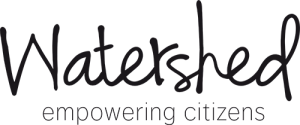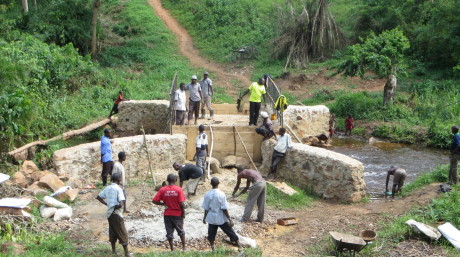
Wetlands International applauds the Dutch WASH Strategy produced by the Ministry of Foreign Affairs for its integrated approach to WASH[1], the conservation of ecosystems and water resources management. However, in practice, Dutch programmes fail to integrate environmental issues in a manner that will achieve sustainable WASH in developing countries. This shortcoming should be urgently addressed given the Dutch participation in the High-level Panel on Water to achieve Sustainable Development Goal (SDG) 6 – sustainable water and sanitation for all. Better guidance from the Dutch government is an important step to turn policy into practice.
Recommendation to the Dutch government
Wetlands International, as part of our Watershed partnership, carried out research on the obstacles and incentives for sustainable WASH in Dutch development aid. It shows that an important point of improvement is to provide more guidance on sustainable WASH practice for agencies implementing Dutch WASH programmes– ranging from Dutch NGOs to international organisations like UNICEF. We recommend that the Dutch government develops guidance in partnership with expert organisations, starting from existing tools and drawing on available best practices.
“The current focus of the Dutch Ministry of Foreign Affairs is very much on the improvement and maintenance of WASH services in less developed countries. All over the world water insecurity increases the pressure on the availability of water for many sectors including WASH”, said Dr. Chris Baker, Programme Head for Water Resources Management at Wetlands International. “The importance of wetlands as water regulators and suppliers in the landscape is being overlooked. Integrated water resource management, a process that should optimise the balance of water-related social and economic benefits between actors, including ecosystems, is not being implemented in a balanced way. The result is that organisations investing in WASH seek superficial solutions like drilling deeper wells when faced with shrinking ground water tables. Frequently the root causes of the problem, bad water management and deterioration of ecosystems, are not addressed, and the problem persists.”
Improving practice to support sustainable WASH
The Dutch WASH Strategy underlines the need for the protection and restoration of water-related ecosystems to improve the sustainability of WASH. It also recognizes the need to consider links with water claims from other sectors such as agriculture and energy. Under the strategy, investments in water supply and sanitation funded by the Ministry of Foreign Affairs will carry a 15-year sustainability clause, defining that services are supposed to function for at least 15 years after construction or rehabilitation.
Earlier WASH policies also acknowledged the need for sustainability and integrated water resources management. The problem is that these policies were not translated into practice. Better guidance from the Ministry of Foreign Affairs can help organisations pay more attention to ecosystems and water management, and find sustainable solutions. This will help the Dutch government increase its influence as a member of the High-level Panel on Sustainable Development Goal 6. [1] Water, Sanitation and Hygiene
Our research on the obstacles and incentives for sustainable Water, Sanitation and Hygiene (WASH) in Dutch development aid. It shows that an important point of improvement is to provide more guidance on sustainable WASH practice for agencies implementing Dutch WASH programmes– ranging from Dutch NGOs to international organisations like UNICEF. We recommend that the Dutch government develops guidance in partnership with expert organisations, starting from existing tools and drawing on available best practices.
Download and read our publication on WASH/IWRM (Integrated Water Resource Management) alignment in Dutch foreign policies and practices here.
Written by Joyce Kortlandt

